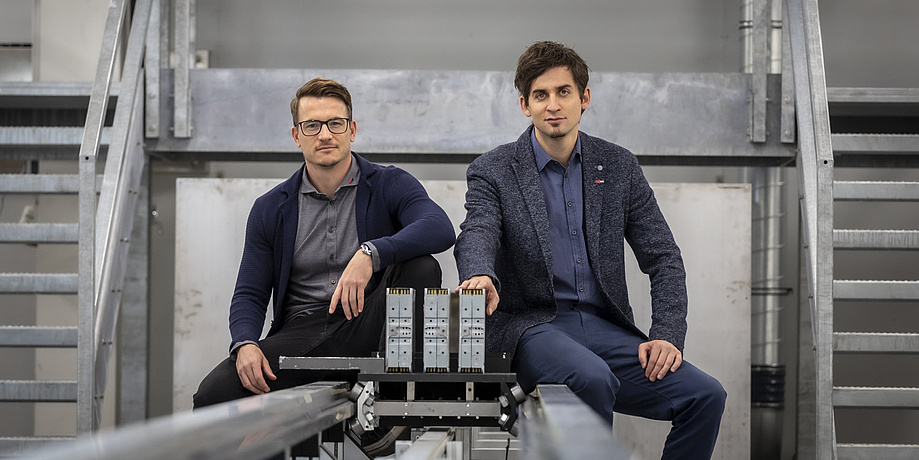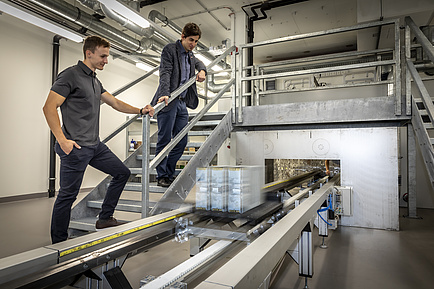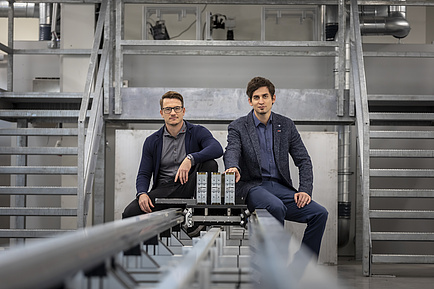It is a great success for Graz University of Technology (TU Graz) and proof of the outstanding expertise of its researchers in the rapidly developing field of battery technology: the Austrian Research Promotion Agency FFG has approved the application for the new COMET K1 centre "Battery4Life". Together with international partners from science and industry, a team led by Christian Ellersdorfer from the Vehicle Safety Institute will work on improving the safety, service life and sustainability of batteries. The FFG is funding the project with a total of around 6.5 million euros, the Province of Styria is contributing 2.6 million euros and Upper Austria 0.6 million euros. In addition, the partners from the automotive and electronics industries are investing around nine million euros over the scheduled project term of four years.
By obtaining approval for the K1 centre Battery4Life, TU Graz is further expanding its position as Austria's most successful university in the FFG's COMET programme. "I am very pleased about the funding for Battery4Life," says TU Graz Rector Horst Bischof. "It demonstrates the outstanding expertise in battery research that we have been able to build up at Graz University of Technology together with industrial partners over many years. Together with the HyCentA hydrogen research centre, our Inffeld campus is becoming a hub for energy storage technology.
Safe battery operation over the entire life cycle
Driven by the expansion of e-mobility, the demand for batteries is increasing rapidly, and large sums of money are being invested in research projects worldwide to increase the capacity of batteries and develop new storage materials. " Given the large number of battery types, there is a growing need for research into their safe operation in a wide range of applications and throughout their entire life cycle," says Christian Ellersdorfer. The COMET centre Battery4Life builds on the COMET project SafeLIB in its work and can also draw on a state-of-the-art test centre in the field of battery safety (Battery Safety Center Graz) located at campus Inffeld. In the SafeLib project, the Institute for Vehicle Safety has developed new experimental approaches and virtual processes. The researchers want to further optimise these in Battery4Life and expand them to include artificial intelligence approaches in order to achieve even more precise predictions with a smaller number of experiments and less computing power.
Second lives for used batteries
The competence centre is also exploring methods to reliably assess the safety status of used batteries in particular. Suitable decommissioned batteries, for example from electric cars, could then be reused as stationary power storage units and would not have to be scrapped, which would greatly improve sustainability. When developing the assessment procedures, the researchers will take into account not only technical aspects but also economic efficiency and legal issues relating to data protection, warranty and liability.
Partners from eight countries
The scientific partners include a number of Graz University of Technology institutes as well as universities and research centres from Austria, Germany, Belgium, France, Switzerland and the USA. Corporate partners include AVL List, AVL DiTEST, Infineon, Fronius, Magna Steyr, Audi, BMW and Porsche.
Two other COMET centres received funding approval
In addition to Battery4Life, two existing COMET K1 centres in which TU Graz is involved have been awarded funding for a further four years: Pro2Future and the Polymer Competence Center Leoben.
This research is anchored in the Field of Expertise "Advanced Materials Science" and "Mobility & Production", two of five strategic foci of TU Graz.
Would you like to receive the latest stories, news, research stories, interviews or blog posts from TU Graz directly on your smartphone or in your email inbox? Subscribe to the TU Graz Telegram newsletter free of charge.



